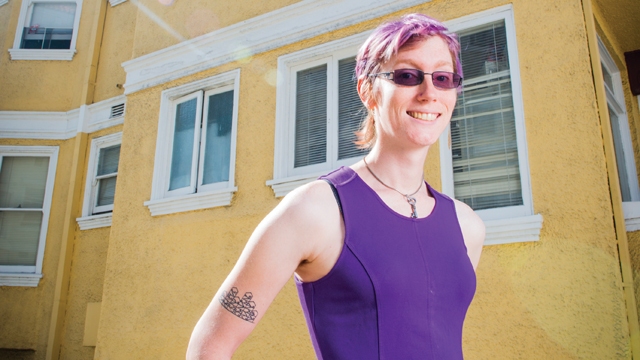When cities like Oakland prohibit new apartments and condos in wealthy neighborhoods, low-income areas pay the price.
When Victoria Fierce arrived in the Bay Area three years ago, she decided to look for a place to live in North Oakland’s Rockridge district. She had scored a job at a tech startup in San Francisco and was attracted to Rockridge because it has a BART station and seemed like a transit-oriented, walkable neighborhood. But she quickly realized that apartments are scarce in Rockridge and the nearby Temescal district and that rents are astronomically high.
“When I first move out here,” she said, “I looked at Rockridge, and thought, ‘Wow, this is so great. … I wish I could afford to live here.’”
Fierce relocated to Oakland from Akron, Ohio, and ultimately landed in downtown. Although she loves living here, she says she sometimes doesn’t feel welcome. She and other millennials who moved to Oakland during the tech boom have been blamed for gentrifying traditionally low-income areas of downtown, Uptown, and West Oakland. Some city residents have derided the newcomers, alleging that they’re responsible for soaring rent and housing prices and the displacement of low-income people of color. Fierce, who is transgender, said she and her friends have been called “gentrifiers” and “techie scum” among other names.
But Fierce and her friends don’t scare easily, and they’re fighting back. They formed East Bay Forward, a group that champions new housing in Oakland, Berkeley, Alameda, and other urban areas, especially along transit lines. They consider themselves to be urbanists, or YIMBYs (for Yes In My Backyard), and they attend city council and planning commission meetings in support of dense housing developments and high-rises, while publicly calling out the NIMBYs (Not In My Backyard) who oppose them.

